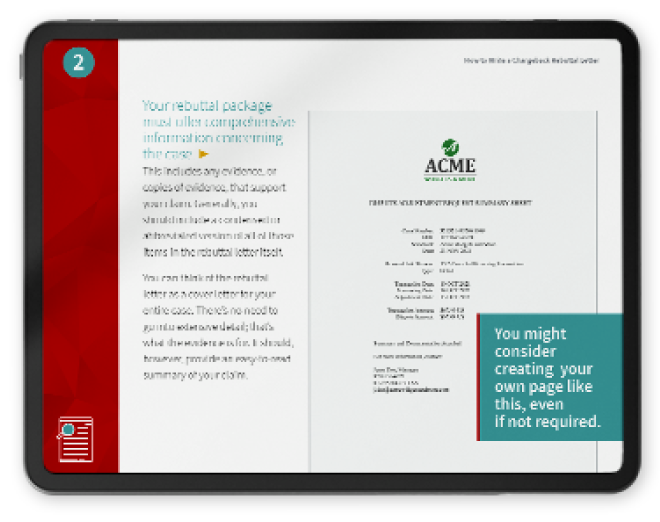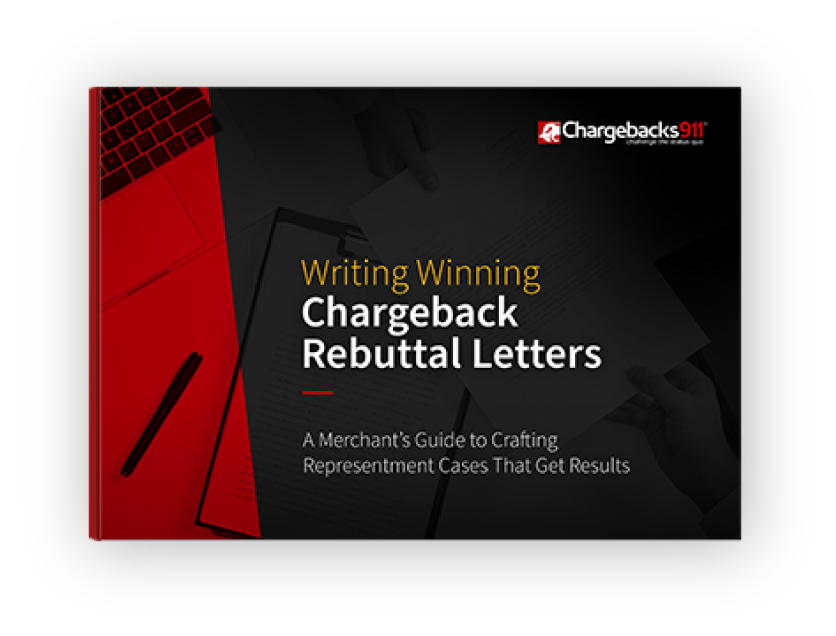The Mastercard Chargeback Arbitration Process: the Last Step for Mastercard Chargebacks
Choosing to re-present an invalid chargeback claim is a smart move. Actually winning a reversal is cause for celebration. Keep in mind, however, that winning may not be the end of the story. If the cardholder or issuer has new evidence, the issuer can initiate a pre-arbitration attempt. If no agreement is reached, the issuer can move to arbitration, and this is where Mastercard will say who is responsible.
In this post, we’ll take a look at the Mastercard chargeback arbitration process. We’ll explore what arbitration is, explain why it exists, and point out when merchants should – or shouldn’t – consider arbitration a viable option.
This article is specific to Mastercard’s process. Click here to learn more about dispute arbitration in general
Recommended reading
- Chargeback Rebuttal Letters: Templates & Tips for Responses
- Pre-Arbitration Chargeback Process: How do Pre-Arbs Work?
- Chargeback Reversal: 6 Simple Steps to Get Your Money Back
- Can You Dispute A Dispute? Yes — Here’s What to Do
- What is Compelling Evidence? Examples & Tips to Win Disputes
- How to Fight Chargebacks | Recover Revenue in 4 Basic Steps
What is Mastercard Chargeback Arbitration?
Chargeback arbitration is the last stage of the Mastercard dispute process. It happens when a chargeback claim can’t be resolved to everyone’s satisfaction. The banks, the cardholder, and the merchant have tried working things out directly, but they’re at an impasse. The case is turned over to a Mastercard representative who will examine the evidence and make an impartial judgment.
To reach arbitration, the issuer must submit a pre-arbitration case filing. If you get hit with a pre-arb filing, you’ll either have to accept the original chargeback, or reject so Mastercard can step in to review the case and render a judgment.
Pre-arbitrations happen after the resolution of a chargeback representment, but before actual arbitration. You, the merchant, have represented a chargeback claim and won a reversal, but the cardholder (or their bank) doesn’t accept the judgment. They compile additional evidence and dispute the transaction a second time. The bank then files a pre-arb in response.
That’s the big picture, but the specifics can be a bit complex and confusing. To start, let’s look at some of the general steps in the process.
Theoretically, Mastercard decides cases as a neutral, unbiased arbiter. It’s good to remember, however, that they’re also motivated to protect their brand and the banks/cardholders that use their product.
How Does the Mastercard Chargeback Arbitration Work?
Card networks all have their own systems for handling disputes. Despite different rules and terminology, most follow the same basic pattern. The original transaction is disputed by the customer, the merchant contests the cardholder’s claim, and then the case is sent to arbitration is no resolution is reached.
Naturally, each card network has its own quirks. Mastercard’s individual steps look something like this:
The Role of Mastercom
Mastercard guidelines say that all arbitration cases must be managed through the Case Filing application within Mastercom, the network’s end-to-end dispute resolution platform. If you submit an arbitration request, you’re responsible for attaching legible copies (or links) for all the relevant documentation.
All this happens right through the platform. You’ll need to include all the supporting documentation submitted up to this point, plus any new info you can find to strengthen your case. And naturally, Mastercard will also want a written explanation of why any new information was presented.

If you’re already feeling overwhelmed, here’s a small spot of good news: you can withdraw the case for any reason, at any time before a Mastercard decision. You simply accept the financial liability for the original claim.
Mastercard Arbitration Time Limits
Time is another consideration when contemplating arbitration.
There are specific time limits associated with every aspect of the chargeback process. For example, most cardholders can only file a chargeback within 120 calendar days of the initial transaction.
In the Mastercard pre-arbitration time frame, though, the issuer must file within 45 calendar days of the second presentment settlement date. That sounds like a reasonable time frame, but the numbers can be misleading.
Your acquiring bank will probably have much more stringent deadlines. This is done to make sure they have enough time to get all the necessary information to Mastercard before the deadline. In practice, your response time will typically be 50-65% of Mastercard’s limit.
In other words, while you may “officially” have 30 days to respond to an arbitration case, you should count on having 10 days (at most) to get documentation and evidence to the acquirer.
The issuer, by the way, has the right to respond to any new information you provide, at any time, right up until the case decision is finalized.
Mastercard Review Stipulations
Mastercard won't rule on a case until the other party rejects the claim filing through Mastercom.
Even after all the documentation is delivered and reviewed, Mastercard can decline the arbitration case for any number of reasons. For example, if:
- the filing customer didn’t supply enough documentation.
- the claim was filed beyond the acceptable time limit.
- the case filing was not submitted in English.
Mastercard used to allow 10-calendar day time frame for acquirers to respond to an arbitration case filing. This window will be eliminated effective October 18, 2024. This is being done because no new information can be added during the arbitration response, meaning 10-day window caused an unnecessary delay.
If all the right information was submitted through Mastercom within the relevant time limit, Mastercard will most likely review the case and make a call. They’ll take several things into consideration in doing so:
Technical merits of the case
The substance of the case
Previous case rulings
Implications for Mastercard
Can Merchants Win a Mastercard Chargeback Arbitration Case?
Winning a chargeback reversal is tricky under the best of circumstances. Changing requirements, clerical errors, and missed deadlines can stop a case in its tracks. If the claim escalates to arbitration, the odds against you are statistically very high.
There are plenty of reasons for this. To start with, card networks usually default to the most expedient solution. But maybe the biggest reason you’re likely to lose a Mastercard arbitration case is more practical: you probably don’t have any new evidence.
Think about it: you were trying your best to win the original representment, right? To up their chances of reversing a bogus claim, merchants tend to use every scrap of evidence they have (and rightfully so). So while the cardholder or issuer may come up with new evidence, you may not have anything new to counter it with.
If that’s not enough to reconsider arbitration, consider this: arbitration doesn’t come cheap. Mastercard arbitration fees can run into hundreds of dollars, depending on the outcome. This is on top of any chargeback fees you’ve already racked up. And since the chances of success are so low, all that money could easily go right down the drain.
If the value of the transaction is high enough, and you have strong evidence to support your case, arbitration might be worth the risk. Otherwise, unless you’re talking about a five-figure purchase, it may be better to simply take the financial hit from the original chargeback. That’s a decision you’ll probably need to make on a case-by-case basis, though.
Preventing Mastercard Arbitration Chargebacks
An arbitration case filing prolongs the chargeback process and saddles you with additional costs and responsibilities. It should only be considered something to be avoided whenever possible.
The best way to avoid chargeback arbitration is by avoiding chargebacks altogether.
The professionals at Chargebacks911® are the industry experts at contesting both initial chargebacks and arbitration chargebacks. Better still, we can also help build cost-effective prevention and risk mitigation strategies. We have tools that enable you to discover the true sources of all your chargebacks, and implement an end-to-end management strategy to retain revenue and prevent future disputes. Contact us today for more information about our turnkey solutions.
FAQs
How does the Mastercard chargeback arbitration process work?
Mastercard chargeback arbitration is the last stage of the dispute process. It means the parties involved — the banks, cardholder, and the merchant — cannot resolve a dispute directly, so a Mastercard representative is asked to examine the evidence and make an impartial judgment.
How much does Mastercard arbitration cost?
The final cost of Mastercard arbitration will vary widely based on different factors, but you’ll usually pay no less than $700; the cost can go much higher for the losing party.
What are the odds of winning in arbitration?
Statistically, the chances of winning a Mastercard arbitration are incredibly slim – particularly without professional help. Winning largely depends on the strength of the evidence presented and how well it aligns with Mastercard’s policies (including Mastercard chargeback time limits). Having thorough documentation and a solid understanding of the dispute process will naturally increase the chances of success.
Is it worth going to arbitration?
Deciding whether to pursue arbitration with Mastercard largely depends on the specifics of the case and the evidence available. If the merchant believes they have a strong position supported by thorough documentation, it may be worthwhile to initiate arbitration to potentially overturn an unfavorable chargeback decision. If the evidence is thin, however, the cost of arbitration may outweigh potential benefits.
What happens if you win in arbitration?
If a merchant wins in arbitration with Mastercard, it typically results in the reversal of the chargeback, allowing the merchant to retain the funds that were initially disputed. Additionally, winning may strengthen the merchant's position in future disputes by establishing a precedent of favorable outcomes based on the presented evidence. The losing party normally will be liable for the cost of the arbitration.















